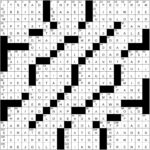The Hawthorn Archive Letters From The Utopian Margins
The Hawthorn Archive Letters From The Utopian Margins – (2017). First, she, like many radical thinkers, first questions the methodological limits of her discipline, introducing the concept of “haunting”. Here the themes of passion, oppression and ghosts are easily identifiable and closely linked to the notion of the “utopian margin”, an area she will use extensively in her future work. (His online presentation for the RIBOCA2 public program will focus on both concepts.)
Being haunted is a fact of life. Memory and the presence of past ghosts are often not only one of the components in the formation of reality, but often the main one that determines it in both private and collective life practices. There are also imaginary notions of the same past, future or the possibility of a different life. They are longings and lusts that always haunt us, which directly affect life. “We are haunted by historical choices that could have been made and by the strange impermanence of the shadows of lost and better futures that propel ourselves to do something, sometimes as nostalgia, sometimes as regret.” , sometimes as a kind of criticism urgency. When something becomes urgent to be done, it seems that it was already needed or wanted, perhaps forever, certainly for a long time. When When something becomes urgent to be done, we feel that we can’t wait any longer for things to change, now awful, but, of course, one waits, sometimes patiently, sometimes not. “[1]
The Hawthorn Archive Letters From The Utopian Margins
At the same time, the methods in which the relationship between knowledge, experience and power are studied today largely ignores this area. Gordon therefore offers an alternative way of illuminating this past and future, and hence the screaming immediate present, which goes unnoticed in traditional discourses. “Everyone has to live in the gap between theory and practice, between the ideas we have and what we are able to make them into a tangible life form. Everyone lives and works in the gap. Questions It’s what you’re doing there.”[2]
The Tectonics Of Asking Questions: Struggles For The Collective Consciousness And The Archive Of “green” Extractivism
It is largely an example of the difficult-to-describe concept of the ‘utopian margin’ that Gordon borrowed from the German philosopher Ernst Bloch’s texts – an avoidance-based runaway mode of living “what if” as if it were reality. This life is in a permanent transition between “as it was dreamed” and life “as it should be”.
It resonated widely in the field of humanities, and had many reprints and revised editions. Gordon, however, continued to explore the topic in a project that lasted more than 20 years, the so-called
, a small part of which is the second and no less influential book mentioned above. (The spiky hawthorn is a tree shrouded in myths; it is associated with “witchcraft practices” or folk medicine and, in many European cultures, it guarded the boundary between the worlds of the living and the dead.) “The collection, although it is not really a library, with a somewhat incomplete and disorganized intellectual history, but not a completely random selection of fanatics, fugitives, fugitives, runaways, abolitionists, heretics, dreamers and different people who have at some point stopped doing what they were told they had to do, stopped thinking about what they were told they ought to think, and stopped being available to the things that needed to be created or He had no design in controlling.”
Such a collection of arbitrary and unconventional life practices, consisting of personal letters, notes, stories, conversations, reports, evidence, various images and other reflections, apparently did not correspond to rigorous scientific research methods, but to an experimental form of material processing. was. Used in research based art practices. Such people were not unfamiliar to Gordon, as he was already aware of the heavy bureaucratic formality and rapid commercialization of universities, and consequently from a practitioner of various other forms of “interdisciplinary” and a popular speaker and participant. “ran away”. In many art forums and biennial projects. The search for a new language that takes into account both the “in-differents” themselves and the standards of communication in intellectual and academic environments about their experiences is the “gap” in reality in which Gordon’s texts reside. In the introduction to the collection book, she states that in the context of academic research, the project is a failure (although the resounding response from her colleagues indicates that failure would have been guaranteed in the opposite case – if it had been followed by the strict scientific literature. criteria).
Part Two: Dear Science And Other Stories/a Collaboration
There are some commentators who see similarities in Gordon’s work to the works of Italo Calvino and Walter Benjamin, partly because of his fictional, partly philosophically applied and documentary style. Others note his poetic language and depiction of his personal passions that are reflected in artistic expression such as repeated choruses and repetitions, and the poetic qualities he gives to long lists. (Hopefully this is evident in the citations chosen for this article as well, and I’m glad there are others who, when referring to it
Has seen signs of poetry and literary use in traditional book formalities such as list of contents, footnotes and bibliography. None of this is random or accidental.
In the task of arranging the archives required by the book format, Gordon deliberately allowed for inaccuracies, ambiguities, and contradictions, which science has always opposed, but which occupies a place in the arbitrariness of life. and art. “It’s all true, she says with a smile you can’t see.”)
During the more than twenty years he devoted to the creation, archiving and storage of archives, Gordon also hosted the weekly radio program
Los Angeles Archivists Collective › Archives After Austerity
On his university’s radio station, thereby providing another opportunity to be heard, persecuted, imprisoned and expelled from all rebels who have been forced to withdraw or arbitrarily withdraw from the current standard system , which she does not call, contrary to the official terminology of sociology. Fourth Industrial Revolution, but Fourth World War against humanity.
Avery Gordon’s lecture “Haunted Futures: The Utopian Margins” took place on August 27, 2020 as part of a series of online lectures and talks organized by RIBOCA2.
Words for World’s Theory — Essay — 22.10.2020. A Conversation Between Sophia Lemos and Vents Weinbergs Find Your Hacker Within the Thought Zone – Essay – 22.09.2020. The creation and appreciation of beauty is not the only preserve of the human thought field – Essay – 16.09.2020 About Culture and Media Scholar Mackenzie Wark. A strange universal orgy about the Belgian philosopher and ethicist Vincien Despreet in the field of thought – Essay – 02.09.2020. Italian philosopher Emanuele Coccia is not about a better world, just a different thought field – Essay – 18.08.2020. On Jack Halberstam, one of today’s foremost gender and queer theorists, on Voices from Other Worlds – Essay – 11.08.2020. On Peruvian anthropologist Professor Marisol de la Cadena, University of California (Davis) as Research, A Labor of the Love Thinker – Essay – 04.08.2020. About British Anthropologist, Tim Ingolds, Work Let’s Dance in the Dark with No Choreography! Thinker – Essay – 28.07.2020. On Andre Lepecki – Curator, Performing Arts Academic, and New York University Professor Time has been stolen, but we can get it back in the thought-zone – Essay – 21.07.2020. About Poet and Afro-American Culture Scholar, Jackie Wang Waters is a Bottomless Subject Thinker – Essay – 14.07.2020. Feminist and Scholar Estrida Niemnis / “We’re All At Sea” on Spiritual Discontent, or, Giving Finger Unseen Thought Zone – Essay – 07.07.2020. A lesson on marginal spirituality in the Soviet and post-Soviet space universe, we do not yet know what kind of thought field – Essay – 30.06.2020. Boris Gryus and the Institute of the Cosmos Lecture “Cosmic Disputation” Reimagining Botanical Mindfulness in Our Conversation – Interview – 25.06.2020. An interview with philosopher Michael Marder What a magician, a sorcerer or a metaphysician has to say to a teenage thinker – Essay – 23.06.2020. Federico Campagna / Lecture “The End of the World(s” Plants know about us, but we don’t know about them) Still Thoughts – Essay – 16.06.2020. Michael Marder / Lecture “To Heal a Shipwrecked World: St. Hildegard’s Cures” Southern Shoots on Northern Ruins Reflection – Essay – 09.06.2020. Boaventura de Sousa Santos / Lecture “The Future Begins Today” Strike Thoughts on the field It’s hard not to love a woman – Essay – 01.06.2020. Sophie Lewis / Lecture “Mothering” Against the World” Man at the Center of Everything (Failed) Thought Zone – Essay – 25.05.2020. Tobias Rees / Lecture “Notes on Nature (Thinking of Human in Non-Human Context) “Unexpected insert self-area – Essay — 18.05.2020. CAConrad / Lecture “(Soma)tic Poetry Rituals” On December 15, in London, Avery Gordon, Race and Class Contributor and member of the Editorial Action Committee, published his book Hawthorne Archive: Letters from the Utopian Margins – Launched in which she collects the traces of ‘Rad’ fugitives, deserters, abolitionists, heretics, dreamers and libertarians of all colors and nations.
Below we publish a welcoming contribution to the Hawthorne Archive Project from Les Back, Professor of Sociology at Goldsmiths, University.





